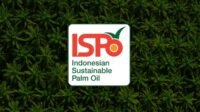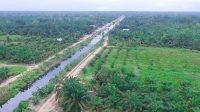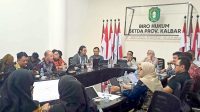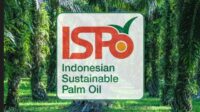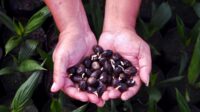PALMOILMAGAZINE, JAKARTA – The mandatory retention of Export Proceeds (DHE), announced by President Prabowo Subianto in February 2025, has sparked debate in the palm oil industry. While the regulation is expected to strengthen Indonesia’s economic foundation, concerns are growing that its ripple effects could weigh heavily on processing companies and smallholder farmers.
Speaking at a press conference at the Merdeka Palace, President Prabowo emphasized the policy as a key strategy to safeguard economic resilience. The measure, formalized through Government Regulation (PP) No. 8/2025, requires export earnings from the mining (non-oil and gas), plantation, forestry, and fisheries sectors to be deposited in national banks for 12 months. The government estimates this could boost foreign exchange reserves by up to USD 80 billion in 2025, with potential to exceed USD 100 billion if fully implemented.
Still, the regulation presents a double-edged sword. For businesses—particularly in the palm oil sector—the shift is far from minor. Ronny Hertantyo Raharjo, Director of PT Citra Borneo Utama Tbk. (CBUT), noted that extending the DHE holding period from three months to a full year marks a significant adjustment.
Also Read: Indonesia’s CPO Reference Price Climbs in September, Export Duty Set at 10%
“Fortunately, there is flexibility. Foreign currency funds can be directly converted into rupiah at the same bank, so working capital isn’t too disrupted,” Ronny explained during CBUT’s Public Exposé in May 2025.
He contrasted this with the past, when export proceeds were often withheld by overseas buyers, leaving companies struggling to cover operating costs. Today, while the funds cannot freely leave the country, the option for immediate conversion offers some breathing space. However, Ronny stressed that not all palm oil firms are equally equipped to adapt—especially thousands of small and mid-sized players who may face far greater pressure.
The same concern has been echoed by the Palm Oil Farmers Union (SPKS). Its National Council member, Mansuetus Darto, warned that the burden could ultimately trickle down to the grassroots.
“Smallholders don’t export directly. They sell their fruit to cooperatives, middlemen, or mills. But if exporters are hit, mills are hit too. Eventually, farmers could struggle to even harvest,” Darto told Palmoilmagazine.com.
The DHE policy has thus become a crossroads: between safeguarding national economic sovereignty and ensuring breathing space for businesses on the ground. Without complementary support measures, the heaviest impact may fall on smallholder farmers—the backbone of Indonesia’s palm oil industry. (P2)


